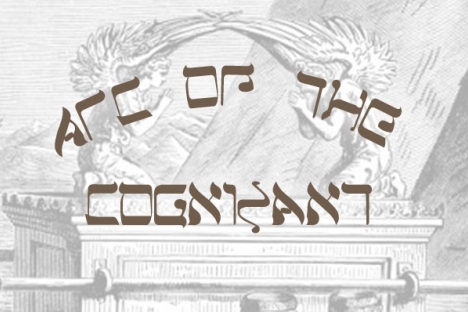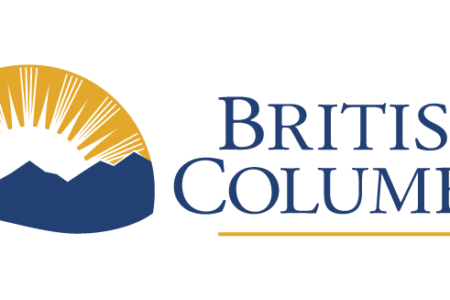COLUMN: A Fork in the Road -- Canadians' Privileged Choice?
There is a war between the rich and poor,
A war between the man and the woman.
There is a war between the ones who say there is a war
And the ones who say there isn’t.
Why don’t you come on back to the war, that’s right, get in it,
Why don’t you come on back to the war, it’s just beginning.
Why don’t you come on back to the war, don’t be a tourist,
Why don’t you come on back to the war, before it hurts us,
Why don’t you come on back to the war, let’s all get nervous.
I was so easy to defeat, I was so easy to control,
I didn’t even know there was a war.
There is a war between the left and right,
A war between the black and white,
A war between the odd and the even.
Why don’t you come on back to the war — pick up your tiny burden.
Why don’t you come on back to the war — let’s all get even.
Why don’t you come on back to the war — can’t you hear me speaking?
(Excerpts: “There is a War”, Leonard Cohen)
Stuck between two paradigms
Readers of this column will know of my admiration for Charles Eisenstein. His clear vision of our moment in time, as we leave behind one Story of the People — Progress and Separation – and evolve the new Story – Interbeing – is compelling. We live in the “space between stories.” We might be evolving toward the sacred economy, the economy of the gift, as Eisenstein believes. Or not.
One of the effects of living in this space is observable in Canada today. It is seen in stark contrasts in Canadian economic and political affairs, in the choice between Alberta’s old-paradigm industrial capitalism and BC’s Green vision, of a post-fossil-fuel, beyond-captialist economy. On one side, Rachel Notley and Justin Trudeau, on the other, John Horgan and Elizabeth May.
Horgan has approved the Site C dam, so he is not truly a visionary of the new paradigm. But May and the Leap Manifesto idealists like Naomi Klein are definitely pushing Canada toward the new story and the new economy.
What are the “battle lines” of the choice Canadians face? (I am hesitant to use such a phrase, since it implies violence. I would rather our Revolution happen in the way of the Odonians in Ursula K. LeGuin’s marvellous 1974 novel, The Dispossessed. )
Citizens and Employees
Democracy is understood quite simplistically in Canada, I believe, and our ruling class is content that this be so. I am not going to attempt here to sketch out the evidence for how we are ruled in Canada’s class society by a minority who are the ruling class. If you doubt we live in a class society, stop reading now. One must decide what one thinks about our social order. My mind is made up and I will not spend the time to bring along conservatives who do not agree we live in a class society.
Elections to representative legislatures, a free news media and independent judiciary, substantial legal rights enshrined in a Constitution, the “rule of law” – these are the things Canadians assert prove that our nation is a democracy. They will note it is not perfect, but it is one of the best in the world. Fair enough. That is a consensus perspective sanctioned by majority opinion and propagated through our media, our educational institutions, our conversational norms (“common sense”). This is how the hive mind of a social organism is generated, the social construction of reality.
A Canadian citizen is an enfranchised voter with rights guaranteed by our Constitution. A full citizen must be an adult, and most adults in Canada are employed, barring special challenges to their mental, physical, or emotional abilities. Employment is understood — without much explicit articulation in our daily media discourse or private conversation — to be essential to full citizenship in Canada.
No one seriously doubts that one must have an income to have a good quality of life in Canada. Income from employment is a necessity, then, for our democracy to function well. Who employs us? The “private sector,” mostly, though there is a substantial sector for public employment also.
Who are our private sector employers in free-market capitalism?
(Oh yes, “capitalism” is the word for the systems we have organized for economic activity, as I assumed all readers would know.) Corporations are the major players in this type of 21st century economy, though small business is significant. Corporations make enormous profits, we all know it — and mostly we live in peace with that fact, apparently. No mass movement to alter our corporate order is on the rise in Canada. The Leap Manifesto foresees a different order, but there is as yet no Leap Movement manifesting in our public sphere, in elections, in mainstream media, in street activism.
Indigenous First Nations are more visible as an alternative way of life. Although there may be more public talk about ‘traditional ways’ than actual practical application, I am thinking of aboriginal values balancing human consumption with natural resources, of ‘ecology’ understood and lived naturally (without that scientific terminology), of perceiving spiritual life in material and animal phenomena. These pathways to a harmonious life ̶also vigorous among the aboriginal Celts and Germans in ancient times when the Greco-Roman imperialists were encroaching on the natives north and west of the Mediterranean — must be resurrected for the New Story. There is little evidence that I can see that these ways are becoming influential among the citizen-consumer-egotists who constitute the vast majority of the affluent bourgeoisie of the West. But, with the kind of mind Eisenstein and ‘Leapers’ are trying to evolve among us, we might reinvigorate these new/old ways of living once again. We will not do that so long as capitalism is the dominant economic paradigm.
Consumers
So what is the relationship of our democratic government to the huge economic powers who employ us? Dependency, in a word. Government depends on capital investment in the economy to employ its voter-citizens. Unemployed citizens are justifiably upset citizens. Keeping them employed is government’s first need, though again no one tends to say this is the case in democracies.
Who has the greater power over the democracy, elected politicians or owners of capital? Surely it is the collective group we call owners of capital, of corporations, of businesses who give us our jobs and paycheques.
If one cannot maintain oneself and one’s family at the high material standard of living expected by middle-class Canadians, one is not fully a citizen and cannot participate in the public life of this country.
The Limit: political power cannot touch the basic economic system
Perhaps I have lost some readers by my reasoning to this point. But the conclusions I draw from what I have laid out, seem easy to draw.
1.) Politicians have to keep within definite boundaries when they exercise their power so as not to render citizens unemployed. The politician is a servant, not a master, despite their legally-constituted authority to govern the people of the democracy. Citizens are consumers fully as much as they are electors.
2.) The masters are the owners and the executive management class of the corporate order. No government can act against those people without fear of causing the people to get angry. Cause people to lose paycheques and one will be quickly regarded as a threatening person. Unemployed, one is not much of a consumer. In a consumer society, this is critical disempowerment.
Rachel Notley has my sympathy for her political quandary. She is a progressive in many areas: women’s issues, aboriginal matters, social, educational and healthcare spending – in all these affairs, Notley’s NDP is much preferable to the Conservatives.
To deliver the kind of programs her progressive ideals motivate her to deliver, Notley must retain power. She cannot touch the foundation of Alberta employment, the mighty petro-capitalists who can deliver on promises of substantial paycheques for workers in the oil patch. From that foundation flows the affluence Albertans demand. She must protect and promote that foundation, if she is to stay in power.
This is Canada’s national quandary on a provincial level.
Justin Trudeau also claims to be a progressive, promising the same kind of enlightened policy for Natives, immigrants, parents, the environment, impoverished/homeless people, the disabled, the unusual-gendered minorities — and the middle class, as he says again and again.
To challenge the corporate capitalist order is beyond his intention and his ability. His father was a profound thinker on the subject of liberty, the individual, the State, and the social order of capitalism. Justin is a lightweight and has never demonstrated that he comprehends the relationship of the economic masters to the political servant class. He is admirably suited to be a puppet of an order which lies under his governmental structures and commands those structures to leave the foundation strictly alone.
Conclusion
First, I offer no personal blueprint for a post-capitalist social order. As an ardent adherent of socialism in most of my activist life, I had such a blueprint. I have seen why that particular Marxian leftist plan is now superseded by the unfolding of events in the world since the 1970’s. Eisenstein has been an important guide for me in my evolution away from doctrinaire Marxism.
I do however urge readers to visit this website to read the 15 points of the Leap Manifesto, a document as important I think as the Regina Manifesto of the old Co-operative Commonwealth Federation (CCF) which existed before the modern NDP moved Canadian socialism into the paths of British labourism.
Here is the link to the Leap Manifesto:
https://leapmanifesto.org/en/sign-the-manifesto/
I know which side I am on in this time between stories.
I trust readers of this column know their allegiance, and will find pathways to make their choices felt in politics and the economy.
Here are some links on an alternative economy flourishing in Spain and Italy:
https://www.theguardian.com/commentisfree/2012/jun/24/alternative-capitalism-mondragon
And a link to an excellent blog piece:
http://www.agjohnson.us/glad/if-not-capitalism-what/
For readers with a deep interest and 44 minutes to spare, here’s a panel discussion video on the topic:
























